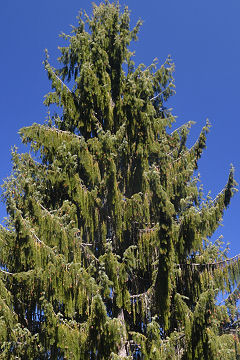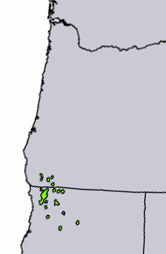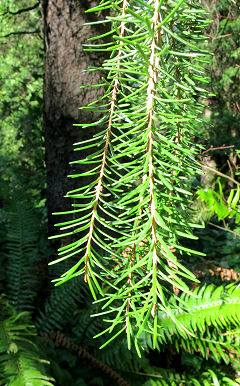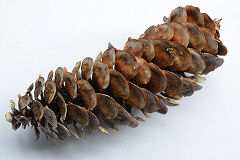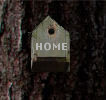 |
Northwest Conifers |
AboutAll ConifersConifersLow-elevationHigh-elevationOthersEast SideSouthwestNon-natives——————Conifer ConesIndexMore Info |
Brewer Spruce – Picea
breweriana
|
|
Brewer Spruce Near O'Brien Oregon
|
This rare, attractive spruce can grow to over 130 feet (40 meters). It is easily recognizable by its drooping branchlets. Needles: Attached to drooping twigs. You can identify this spruce by these distinctive long branchlets that can droop to a length of several feet. Brewer Spruce needles are not as thick and not as sharp as other native native spruces. They spread from all sides of the twig like other spruces. Young trees don't show drooping twigs for 10-20 years. Cones: The cones are generally larger than the cones on Sitka spruce and Engelmann spruce. And unlike the cones of these spruces, Brewer spruce cones have scales with round smooth edges. They look more like mountain hemlock cones but are about twice the length. Bark: The bark is similar to other spruces, reddish-brown with thin gray scales. Where it grows: This rare and unusual spruce grows only in a few locations in southwest Oregon and northwest California at elevations above 3000 feet. There are several trees near O'Brian, Oregon on Highway 199. Follow Waldo Rd. to Greyback Rd. to 41.988 -123.518. Trees are growing on both sides of the road. Brewer spruce at Hoyt Arboretum Names: The species is named for American botanist William Henry Brewer, who discovered it. Another common name: Weeping spruce, describing its drooping twigs, which bring to mind a weeping willow. |
|
© 2012 Ken Denniston

